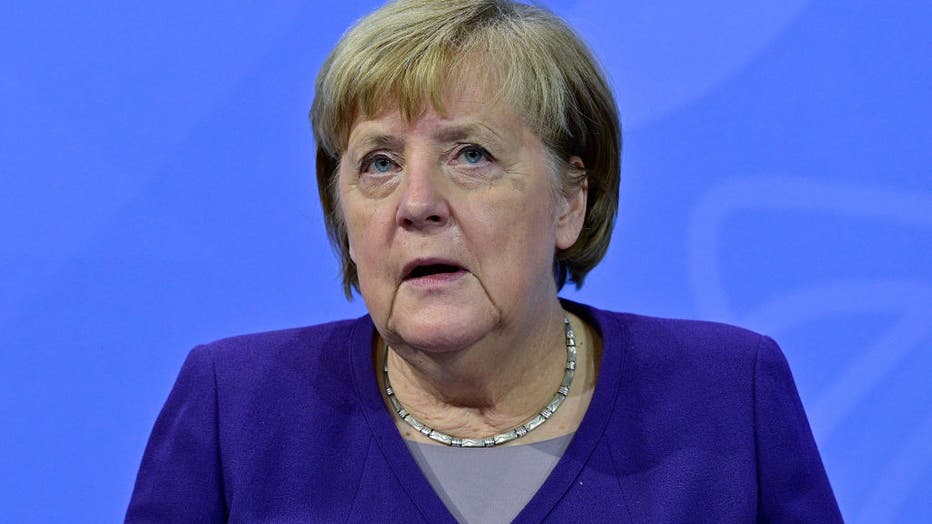Germany bans unvaccinated from nonessential stores, recreational venues

Omicron in US: 1st case of COVID-19 variant confirmed in California
The first case of the new COVID-19 variant omicron has been confirmed in the U.S., CDC officials announced. The variant, first detected in Africa and Europe on Nov. 26, now has been confirmed for one person in California, officials said.
BERLIN - German Chancellor Angela Merkel said Thursday that people who aren't vaccinated will be excluded from nonessential stores, cultural and recreational venues, and parliament will consider a general vaccine mandate as part of efforts to curb coronavirus infections that again topped 70,000 newly confirmed cases in a 24-hour period.
Speaking after a meeting with federal and state leaders, Merkel the measures were necessary in light of concerns that hospitals in Germany could become overloaded with people suffering COVID-19 infections, which are more likely to be serious in those who haven't been vaccinated.
"The situation in our country is serious," Merkel told reporters in Berlin, calling the measure an "act of national solidarity."
She said officials also agreed to require masks in schools, impose new limits on private meetings and aim for 30 million vaccinations by the end of the year — an effort that will be boosted by allowing dentists and pharmacists to administer the shots.

German Chancellor Angela Merkel attends a press conference after a video conference with German State Premiers about the current coronavirus situation, at the Chancellery on Dec. 2, 2021, in Berlin, Germany. (Photo Filip Singer - Pool/Getty Images)
Merkel herself backed the most contentious proposal of imposing a general vaccine mandate. She said parliament would debate the proposal with input from the country's national ethics committee.
If passed, it could take effect as early as February, Merkel said, adding that she would have voted in favor of the measure if she were still a member of parliament.
About 68.7% of the population in Germany is fully vaccinated, far below the minimum of 75% the government is aiming for.
There have been large protests against pandemic measures in the past in Germany and the vaccine mandate is likely to be opposed by a minority, though opinion polls show most Germans are in favor.
Finance Minister Olaf Scholz, who is expected to be elected chancellor by a center-left coalition next week, has also backed a general vaccine mandate, but favors letting lawmakers vote on the issue according to their personal conscience rather than party lines.
"If we had a higher vaccination rate, we wouldn’t be discussing this now,"he said.
The rise in COVID-19 cases over the past several weeks and the arrival of the new omicron variant have prompted warnings from scientists and doctors that medical services in the country could become overstretched in the coming weeks unless drastic action is taken. Some hospitals in the south and east of the country have already transferred patients to other parts of Germany because of a shortage of intensive care beds.
Agreeing what measures to take has been complicated by Germany's political structure — with the 16 states responsible for many of the regulations — and the ongoing transition at the federal level.
Germany's disease control agency reported 73,209 newly confirmed cases Thursday. The Robert Koch Institute also reported 388 new deaths from COVID-19, taking the total since the start of the pandemic to 102,178.
To reduce the pressure on hospitals over the festive period, the sale of fireworks traditionally set off during New Year's in Germany will be banned. Each year, hospitals treat hundreds of people with serious injuries because of mishandled fireworks.
The new measures will take efffect once Germany’s 16 states incorporate them into existing rules, likely in the coming days.

